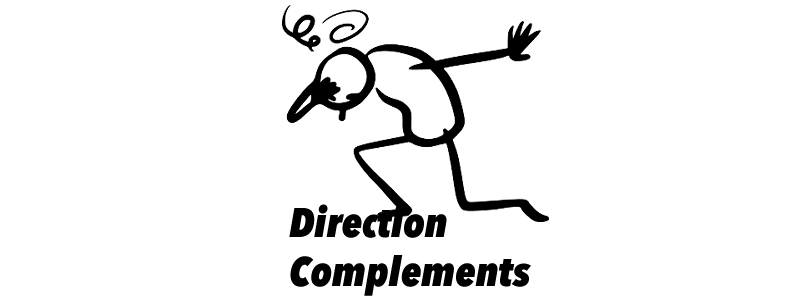This article focuses on the use of direction complements in figurative language, such as in English phrases like ‘clean up’, ‘calm down’, ‘figure out’, etc. If you’re unfamiliar with directional complements, I recommend reading the following links first.
📖 Basic Direction Complement
📖 Compound direction complements
V + 起来 qǐlái
An action begins
It is used to describe an action that starts and then continues, often with a sense of momentum or intensification.
突然下起雨來了突然下起雨来了
Suddenly it started to rain.
他怎麼打開中文書就睡起來了他怎么打开中文书就睡起来了
How come he falls asleep as soon as he opens a Chinese book?
因為我的求婚,我女朋友哭起來了因为我的求婚,我女朋友哭起来了
My girlfriend started to cry because of my purpose.
V + 上 shàng + (O)
An action begins
It is used to describe the beginning of an action without necessarily indicating that it will continue or intensify. The “上 shàng” indicates that the action is starting, but it does not necessarily imply that it will continue or build up.
這孩子又玩上遊戲了这孩子又玩上游戏了
This kid is starting to play games again.
你真的在節食嗎?怎麼又吃上了?你真的在节食吗?怎么又吃上了?
Are you really on a diet? How come you’re eating again?
不是說要戒菸,怎麼又抽上了?不是说要戒烟,怎么又抽上了?
I thought you said you wanted to quit smoking, why are you starting to smoke again?
📚 The differences between V 起 (O) 来 and 开始V:
The first one focuses on the description when explaining a situation or tell a story (usually in the past), whereas the second one emphasizes one’s decision or the starting point (usually now).

天啊!外面開始下雨了,不知道爸爸有沒有傘天啊!外面开始下雨了,不知道爸爸有没有伞
Gosh! It starts to rain. I don’t know if Dad has an umbrella with him.
(Emphasize the start time point )
就在我走出去的時候,突然下起雨來了就在我走出去的时候,突然下起雨来了
When I just walked out, suddenly it started to rain.
(Telling the situation)
V + 下去 xiàqù
An action that starts now and continues to keep going.
別緊張,你說下去别紧张,你说下去
Don’t be nervous, just go on.
你的中文不錯,我建議你繼續學下去你的中文不错,我建议你继续学下去
Your Chinese is good. I suggest you keep learning.
我聽不下去了,你根本在鬼扯我听不下去了,你根本在鬼扯
I can’t listen anymore, you’re just talking nonsense.
FYI
”鬼扯 guǐchě“ is a slang term in Chinese which means “talking nonsense” or “bullshitting”. The word “鬼 guǐ” means “ghost” or “spirit”, which is often used in colloquial Chinese to express a sense of exaggeration or emphasis. The word “扯 chě” means “to pull” or “to haul”, but in this context, it refers to “pulling words out of thin air” or “fabricating stories”. Together, the term “鬼扯” implies that someone is making up unbelievable or illogical stories or talking incoherently.
V + 下来 xiàlái
An action that started in the past and continues until now.
我中文5年學下來,已經花了不少錢了我中文5年学下来,已经花了不少钱了
After studying Chinese for five years, I have already spent a lot of money.
這樣聽下來,這件事確實是你不對这样听下来,这件事确实是你不对
From what I hear, it does seem like you were in the wrong in this matter.
我雖然不喜歡我的公司,但算下來也做了10年多了我虽然不喜欢我的公司,但算下来也做了10年多了
Although I don’t like my company, I have been working here for more than 10 years.
V + 出(来) chū(lái)
From a hidden state to a revealed state/ to come out or from zero to one
我要做出成績我要做出成绩
I need to see some results.
為了做出這個網站,我好累为了做出这个网站,我好累 😵💫
I am so tired to make this website.
我想不出來下一篇文章要寫什麼我想不出来下一篇文章要写什么
I can’t think of what to write in the next article.
(It indicates that the idea or thought is not just in the person’s head, but it cannot come out or be expressed.)
我說出了我的秘密我说出了我的秘密
I told my secret
(My secrets were hidden now they came out)


